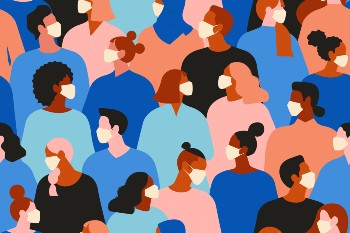
COVID-19 and Immigrant and Refugee Communities: Challenges and Response
Part 2
How have community-based organizations responded to the challenges and needs of immigrant and refugee populations during the COVID-19 pandemic?
Join us for the second of two webinars
Our expert panelists will share their experiences of working with immigrant and refugee communities during this challenging time. Learn more about best practices and strategies for advocating and mediating on behalf of immigrant and refugee communities. Join our Q&A to ask questions and share your experiences!
Time and Date: August 20, 2020, at 12:30 - 1:30 pm Eastern Time
Organized by the Global Alliance's Migrant and Displaced Persons Task Force.
Panelists for Part 2
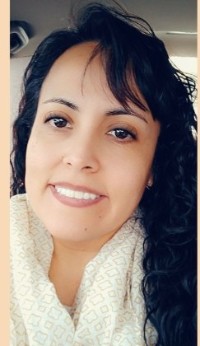
Dulce A. Medina Bustillos, LMSW, MBA
A native Spanish speaker, Ms. Bustillos has dedicated her career to working with Limited English Proficient and Immigrant communities. She has spent the last 10 years working as an Interpreter, Translator, and Promotora for Latino community members. Currently, Ms. Bustillos works as a licensed social worker at a non-profit mental health agency where the majority of her clients are Spanish speaking immigrants. She has been part of the Immigrant Well-being Project for the past two years working to make health resources accessible, raise awareness, and help break down the stigma of mental health services.

Joseph H. Mai, PhD
Dr. Mai teaches all levels of French, including courses on film, poetry, and contemporary civilization, and in the World Cinema Program. Professor Mai’s scholarly interests include French Film, World Cinema, Film Theory and Philosophy, and Contemporary Literature. He is the author of a book on the Belgian filmmakers Jean-Pierre and Luc Dardenne, and a more recent book exploring friendship, philosophy, and politics in the work of the Marseille filmmaker Robert Guédiguian. He is presently co-editing a book on the Franco-Cambodian filmmaker Rithy Panh. He has also been pursuing a number of projects in the field of animal studies and French literature. Penultimate versions of several publications can be found here. Dr. Mai is the leader and advisor of a Creative Inquiry project that engages undergraduate Clemson students in advocacy and support to immigrants detained at the Stewart Detention Center. In addition, he has an ongoing partnership with Amilcar Valencia, which engages El Refugio in this Creative Inquiry project.
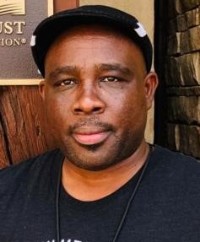
Martin Ndayisenga, BSW
Mr. Ndayisenga is a Community-Based Research Specialist for the Refugee Well-being Project at the University of New Mexico. He is a Learning Circle facilitator and also works on interpretation, translation, and collecting research data through interviews and surveys. In addition, Mr. Ndayisenga acts as a Newcomer Rights activist for promoting refugee and immigrant well-being and mentoring newcomers to navigate the socio-economic systems in their new communities. He is interested in refugee and immigrant mental health for mutual motivation and advocates for those who may need medical intervention. He came to the U.S. as a refugee in 2007 and is originally from Burundi. He speaks Kirundi, Kinyarwanda, Swahili, French and English.
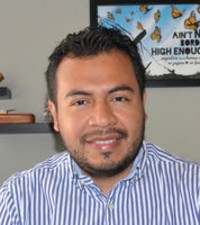
Amilcar Valencia, Bachelor of Theology
Mr. Valencia is the Executive Director of El Refugio. Originally from La Libertad, El Salvador he has been involved in the immigrant rights movement in the state of Georgia since he arrived in the U.S. He has been helping people affected by immigration detention since 2010, and he is one of the founding coordinators of El Refugio’s hospitality house. He has served as a member of the Advisory Board of the Alterna Community since 2011, and a steering committee member of Georgia Detention Watch since 2010. Mr. Valencia has worked with non-profit organizations both in El Salvador and in the US. Previously he worked for the Georgia Latino Alliance for Human Rights (GLAHR) as a community organizer and Hotline Intake Manager. He is a graduate of the University of Central America, UCA, El Salvador.
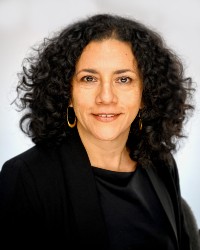
Linda M. Callejas, PhD
A cultural anthropologist, Dr. Callejas conducts research and evaluation on racial/ethnic disparities in behavioral health service accessibility, organizational cultural competence, and strategies for reducing barriers to needed health and human services for children, youth, and families. These strategies include the use of community supports such as natural helpers, community health workers, and peer support specialists in various child-serving systems and with culturally diverse communities. Dr. Callejas also provides consultation, training, and technical assistance to a variety of audiences, including funders, systems leaders, and practitioners, based on her expertise. She currently serves as the Principal Investigator for two federally funded, mixed methods evaluation studies involving randomized controlled trials with families who are at risk of child removal and termination of parental rights due to maltreatment and substance use disorder. These evaluations include qualitative studies with parents to better understand their experiences within the child welfare system, the social conditions that place them at risk of continued system involvement, and how they engage in services, including substance use treatment. Since 2015, Dr. Callejas has led a technical assistance team focused on promoting cultural competence and behavioral health equity as a partner to the Technical Assistance Network for Children’s Behavioral Health (TA Network) at the University of Maryland, Baltimore, focused on better integrating and coordinating the systems that serve children, youth, and young adults with behavioral health needs and their families. Dr. Callejas is a core faculty member of the USF MS Program in Child and Adolescent Behavioral Health and directs the program’s leadership focus area, teaches various courses and advises students.
Moderator
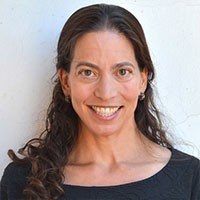
Jessica Goodkind, PhD
Dr. Goodkind is a community psychologist, Associate Professor of Sociology at the University of New Mexico, and Associate Vice Chancellor of Diversity Education for the University of New Mexico Health Sciences Center. Her research addresses the mental health consequences of stressful social environments and involves developing/assessing processes that promote healing, well-being, and social justice. She founded the Refugee Well-Being Project, which has brought together thousands of university students and newly resettled refugees to learn from each other and engage in collective efforts to mobilize resources. The goals of the Project are to improve mental health and to create sustainable changes in communities' receptiveness to refugees and policies that affect refugee resettlement. Dr. Goodkind is also a member of of the Global Alliance Board of Directors and chair of the Migration and Displaced Persons Task Force.
COVID-19 and Immigrant and Refugee Communities: Challenges and Response
Part 1
A recording of this webinar and the slides can be found here
Webinar Panelists
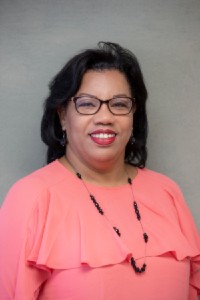
Arelis Moore de Peralta, PhD
BIO
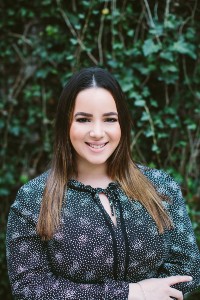
Debbra Alvarado
BIO

Banu Valladares
BIO
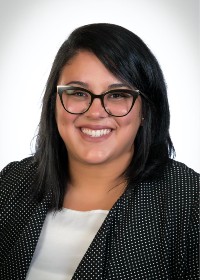
Rut Rivera
BIO
For more thought-provoking discussions like this event, join us at the Coming Together for Action virtual conference on October 7-9, 2020. Learn more at together4action.org
|

